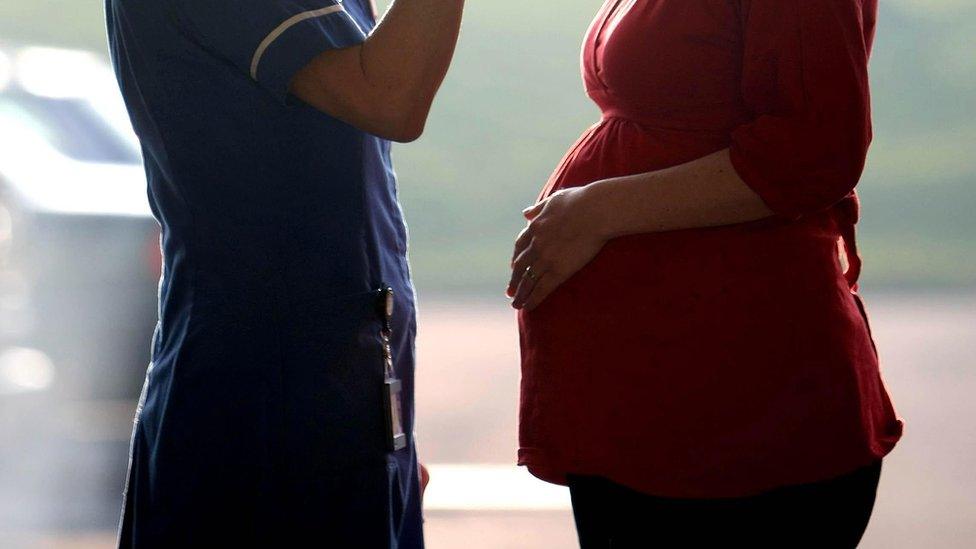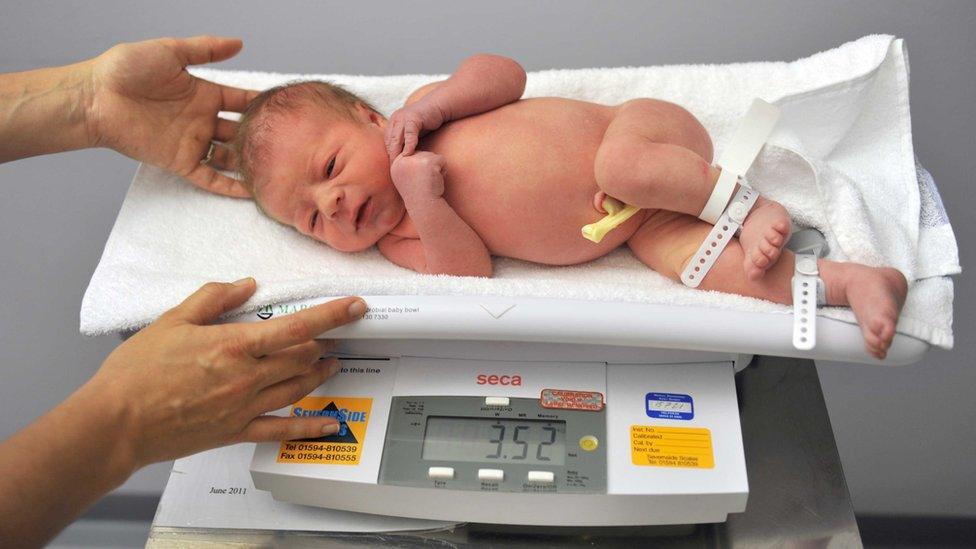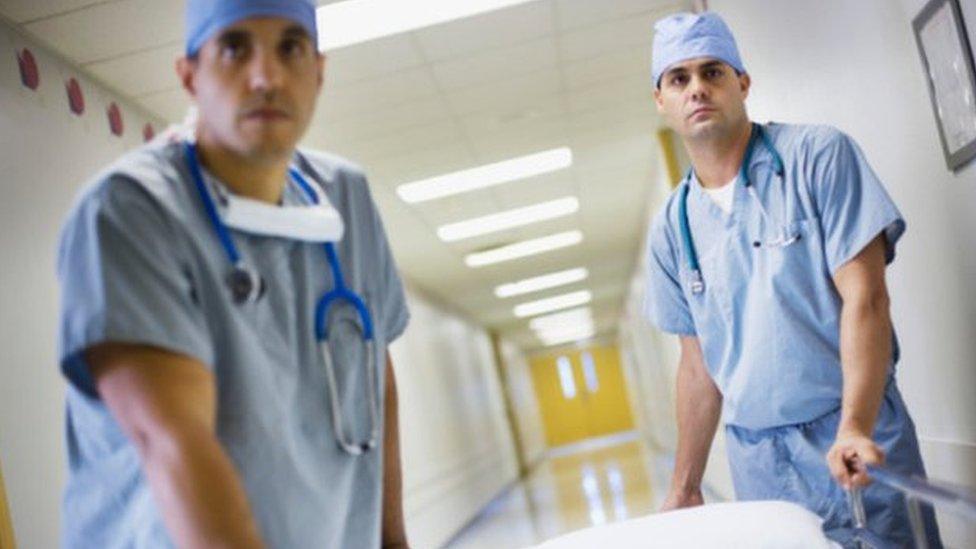More maternity units closing doors, union warns
- Published
- comments

More maternity units are shutting their doors to patients as the NHS comes under increasing pressure, the midwives' union has warned.
The Royal College of Midwives (RCM) said a shortage of midwives was having a major impact and mistakes would "almost certainly be made".
Some 42% of units shut down temporarily in the past year, its survey found.
The government said it was determined to ensure "every mother and baby gets the highest quality care".
A poll of 83 heads of midwifery at NHS trusts found there had been a rise in the number of units that had closed their doors, with 33% having closed the previous year.
The RCM said budget cuts were also affecting services, with midwives struggling to cope with a rising birth rate and increasingly complex births.
A spokesman said England was suffering from shortages the most, as well as the resulting pressure on services.
But he added that rising numbers of complex pregnancies were also putting pressure on other UK countries.
'Safety is compromised'
Its chief executive Cathy Warwick said: "All of this shows a system that is creaking at the seams and only able to deliver high quality care through the efforts and dedication of its staff.
"When services are operating at or beyond their capacity, safety is compromised and mistakes can, and almost certainly will be made, through no fault of the dedicated staff delivering the service."
She said the government was responsible and was "letting down women, babies and their families", along with "the staff they purport to value".
On average, each unit closed its doors on 4.8 separate occasions in 2015, with the most a single unit shut temporarily being 23 times.

The Royal College of Obstetricians and Gynaecologists said the UK was still a "safe place to give birth"
More than 90% of the midwives polled said their unit was dealing with more complex cases than the previous year and 30% said they did not have enough midwives.
And 11% had to reduce services in the last year such as bereavement support and help with breastfeeding.
The RCM says there is a shortage of 2,600 full-time midwives.
'Stretched and understaffed'
Dr Clare McKenzie, vice-president for education at the Royal College of Obstetricians and Gynaecologists, said the results of the survey were "extremely worrying".
She said: "Stretched and understaffed maternity services affect the quality and safety of care provided to mothers and babies, and restricts the choices available to women.
"On the whole the UK is a safe place for women to give birth but pressure on maternity services is growing, placing stress on doctors, midwives, managers and patients."
She added that there was an increase in complicated pregnancies due to rising levels of obesity and an increase in multiple pregnancies and the number of older first-time mothers.
Labour's shadow health secretary Heidi Alexander said: "David Cameron promised to recruit 3,000 more midwives but has failed to do so.
"If mums are to feel comfortable with midwives they know and trust, this staffing issue must be addressed."
A Department of Health spokeswoman said: "We're determined to make sure every mother and baby gets the highest quality care no matter where they live.
"We've invested in 1,900 more midwives and 3,600 more health visitors since 2010 and NHS England has commissioned a major independent review of maternity services for women and babies across the country."
- Published9 October 2015

- Published9 October 2015